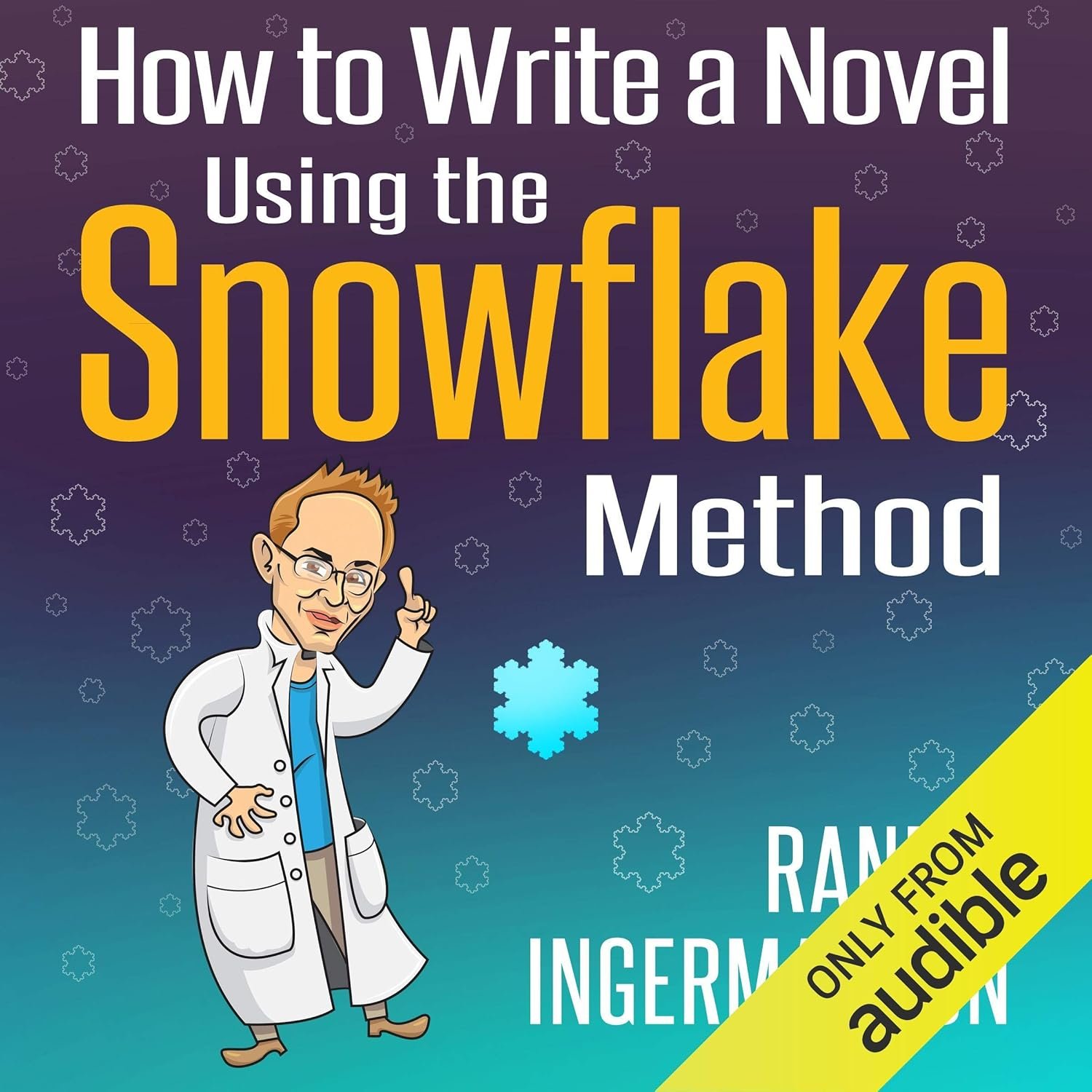
13 Sep Unraveling Creativity: A Deep Dive into the Snowflake Method for Novel Writing
Review of How to Write a Novel Using the Snowflake Method: Advanced Fiction Writing, Book 1 by Randy Ingermanson
As a lifelong book lover and aspiring novelist, I often find myself wandering down rabbit holes filled with writing advice. When I stumbled upon How to Write a Novel Using the Snowflake Method by Randy Ingermanson, the promise of a “battle-tested series of 10 steps” felt like the creative spark I desperately needed. The idea of a method that combines structure with creativity was not just appealing; it felt like the magical key to unlocking my fictional universe.
At its heart, this book is a delightful concoction of storytelling and instruction. Through the lens of a fictitious novelist grappling with her own writing hurdles, Ingermanson teaches us the tenets of the Snowflake Method in a way that feels engaging rather than didactic. I found myself rooting for this character as she transformed her simple idea into a profound narrative—even as I mirrored her struggles with my own writing.
One of the key themes that resonated with me was character development. Ingermanson emphasizes the importance of "getting inside the skin" of every character, including the villain. This struck a chord with me. The notion that the antagonist should be just as layered and compelling as the protagonist is a refreshing reminder that good stories often bloom from complex conflicts. I jotted down notes while reading about character arcs and realized how crucial they are not just for the story but also for our own growth as writers.
The pacing of the book feels just right—quick enough to keep you engaged yet slow enough for contemplation. It’s infused with Ingermanson’s zany humor, making it a light read while being packed with substantial insights. I particularly enjoyed his playful language; phrases like “your ideal listeners” instead of mere readers feel more personalized and intimate. The entire narrative is cleverly framed such that it shows rather than tells—a teacher’s dream.
One quote that stood out was when the protagonist reflects on backtracking as essential: “Sometimes, we must wander to find our way.” This resonated deeply with me, especially as someone whose writing process often feels tangled in a web of ideas. It was a beautiful reminder that detours are not just acceptable; they’re often where the magic happens.
With a strong 4.5-star rating across multiple platforms, it’s clear this book has struck a chord with fellow writers. For anyone who feels stymied by conventional outlining or who dreads the chaos of organic writing, the Snowflake Method offers a solid pathway. I found the approach liberating; it provided enough structure to feel grounded while allowing room for creative exploration.
I believe this book will be particularly impactful for emerging writers or even seasoned authors seeking a fresh perspective. Ingermanson’s playful narrative and insightful lessons will not only equip you with practical tools but also inspire you to embrace your unique voice.
Reading How to Write a Novel Using the Snowflake Method wasn’t just another entry in my bookshelf; it was a transformative journey into the heart of storytelling. I walked away ready to dive back into my own writing endeavors with renewed vigor and excitement. Whether you’re at the beginning of your writing journey or looking to reignite your passion, I wholeheartedly recommend giving this book a read. It might just unlock the writer’s block you didn’t know you had!









